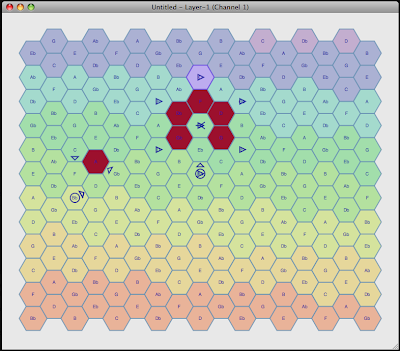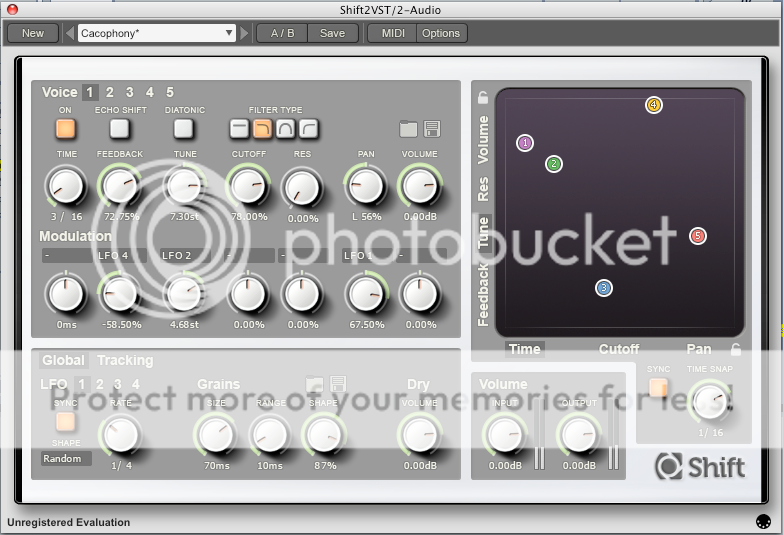Aleatoricism is defined as "art created by exploiting randomness". From Pierre Boulez's experimentation with controlled chance to Brian Eno's use of Koan to produce
Generative Music 1, it's a well explored area of music composition. Even Roland's TB-303 offered prospects for the aleatoric explorer: leaving the battery removed for a short time corrupted the sequencer memory, generating 64 tracks of random acid.
Elysium is a probabilistic sequencer, developed by
LucidMac Software and available (for free) on Mac OS X. It's a pure sequencer, not a synthesizer or a host. It doesn't produce any sound itself, but generates a MIDI stream that can be used to drive any MIDI consuming application or hardware. Despite this, syncing with a DAW such as Logic or Live running on the same machine as Elysium is completely pain-free; no additional configuration was required to get it working.
The Elysium interface is made up of a grid of hex cells, each representing a note of a certain pitch. Playheads move across the grid in sync with the tempo. By placing tokens on cells, the playheads (which are spewed out at specified tempo from a Generate token) can be made to perform an action: a Note token causes the note on the underlying grid to be played; a Split token divides a single playhead into several, each launching out at different trajectories; a Rebound token bounces the playhead back in the opposite direction.

Tokens can also be assigned probabilities, only performing their functions on a roll of the virtual dice: 50% of the time, this playhead will rebound; 25% of the time, this note will play. Using this system, constantly varying pieces of music that would be tricky to compose using traditional sequencers can easily be easily generated.
Watching playheads creep across a grid is somewhat reminiscent of John Conway's cellular automaton Life simulation. The interface is simple to use, but not necessarily intuitive at first glance. Reading the introductory documentation, which is scant but does well in explaining the basics, is advised.
Elysium is currently only available for Mac OS X. It was recently released as open-source under the MIT license, so there is a chance of seeing a port to other operating systems. More information about Elysium can be found at
http://lucidmac.com/products/elysium



